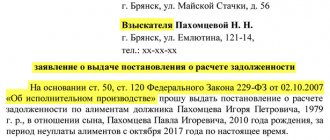The limitation period for inheritance of movable and immovable property is counted from the next day after the death of the testator. You can challenge the distribution of inheritance in a lawsuit within three years. In special situations - if the plaintiff did not know about the death of the testator or was actually unable to claim his rights - the statute of limitations increases to 10 years.
If you have any doubts about the statute of limitations on your case or need help preparing documents, please consult with a probate lawyer. A specialist will help you correctly draw up all the inheritance papers and explain in detail your rights in a particular case.
general information
After the death of the testator, all his property passes to his heirs. Asset distribution can occur in two ways:
- In law. The closest relatives of the deceased are called upon to inherit, and they receive his property in equal shares.
- According to the will. In this case, the distribution of the inheritance occurs in accordance with the text of the order. Family ties and legal order are ignored.
In both cases, the successors are given exactly six months to assume inheritance rights. The countdown begins from the date of death of the testator. The day of opening of the inheritance depends on the method of establishing death:
- Medical report. When a person dies, his body is transferred to the morgue, whose employees issue a death certificate to relatives. It indicates the date of death of the citizen and the cause.
- Judgment. In special cases, a person is declared dead through a court. For example, if he is listed as missing for a long time. Then the day of opening of the inheritance is considered the date the court decision comes into force.
Within 6 months, the heirs must submit applications to the notary. If this is not done, the applicant loses his right to the property of the deceased citizen. The missed deadline can only be restored through the courts.
From what moment does the inheritance open?
All periods of time during which it is possible to enter into an inheritance in Russia are recorded in Article 191 of the Civil Code of the Russian Federation. It says that the date of opening a probate case is the date following the day of death of a person or the date of recognition of him as dead by a court decision.
Dear readers!
Our articles talk about typical ways to resolve legal issues, but each case is unique. If you want to find out how to solve your specific problem, please contact the online consultant form on the right →
It's fast and free!
Or call us by phone (24/7):
If you want to find out how to solve your particular problem, call us by phone. It's fast and free!
+7 Moscow,
Moscow region
+7 Saint Petersburg,
Leningrad region
+7 Regions
(free call for all regions of Russia)
When the inheritance case is burdened by any special circumstances, the case is opened the next day after their occurrence. For example, if the successor of the first priority refused the share of property due to him, being the only heir of this priority, the date of opening of the inheritance case for the second priority will be the next day from the day of this official refusal.
The date of closure of the inheritance case, referring to Article 192 in the Civil Code of the Russian Federation, is the date that served as the starting point, but after a certain number of months. For example, if a case was opened on April 12, in the standard case it will be closed on October 12. If the closing date of the case falls on a date that does not exist in a given month, the last day of that month is taken.
Is it possible to enter into an inheritance before 6 months?
This period was not chosen by chance. Six months are necessary for all heirs to receive notification of the death of the testator, prepare and submit papers to receive the inheritance. After opening an inheritance case, the notary is obliged to notify all successors whose location is known to him.
If a citizen did not know about the death of the testator and missed the six-month deadline, he will have to go to court. Here he must document the validity of the reasons for the absence.
After 6 months after the death of the testator, the successors are issued certificates of the right to inheritance. Having such a document in hand, the applicant can re-register the inherited object in his name.
Current legislation provides for the possibility of accepting an inheritance before the end of the six-month period if the following grounds exist:
- The citizen proves that he is the only heir. This is quite difficult to do. For example, the testator may have children out of wedlock. After his death, the child's mother has the right to submit an application to a notary, proving paternity.
- The property was accepted upon the fact. This is possible if a citizen lived in the testator’s apartment with him, and after his death continued to use the property, investing his money in it.
Judicial procedure for registration of inherited property
Heirs are not always able to divide the property of the deceased voluntarily. It happens that a family gets to the point where a whole struggle begins over the ownership of the deceased.
If there is a dispute, the registration of inheritance rights is carried out exclusively in court.
The deadlines for registering an inheritance through the court are established by current legislation. The statute of limitations is set . This period is provided to citizens so that they can challenge their violated rights in court.
Thus, if there is a conflict situation between legal successors, it is necessary to appeal to the courts within three years.
Inheritance procedure
In the Russian Federation, the procedure for entering into inheritance is of a declarative nature. To receive the property of the testator, the successor must do the following:
- Contact a notary office and write an application.
- Submit to the notary documents confirming the existence of grounds for receiving an inheritance. Also, when visiting the notary’s office for the first time, the applicant must have with him the title documentation for the alienated objects.
- Order an independent property assessment. It will be needed to calculate the state duty.
- Pay the fee. The amount of the state duty is fixed and amounts to 0.3% of the cost of the object for family members of the deceased citizen. We are talking about persons belonging to the first two lines of inheritance. The maximum payment amount is 100 thousand rubles. Other heirs pay a contribution of 0.6%, but not more than a million rubles. The legislation provides for tax benefits for people with disabilities.
- Obtain a certificate of inheritance. This document is issued six months after the opening of the inheritance case upon repeated application to the notary.
- Re-register inherited property in your name. If we are talking about a car, then you should contact the traffic police with the certificate. If it’s about real estate, go to Rosreestr.
Since 2020, certificates of registration of rights to real estate are no longer issued. Now, instead, homeowners receive extracts from the Unified State Register of Real Estate.
Possible nuances
Having figured out what to do in each specific case of property inheritance, let’s consider the other side of the coin. The fact is that when inheriting property, you will have to pay a state fee . The amount varies for each category of relatives.
For example, close relatives pay 0.3% of the actual value of the property. For distant relatives, a different tariff is provided - 0.6%. In addition, the heir receives not only the property, but also the existing encumbrances. This includes utility debts and bank loans.
In fact, these are already trifles. The main thing is to meet the deadlines established by law. You can renounce inherited property at any time, even after acquiring legal rights. However, the refusal procedure cannot be reversed. In this case, the rights are transferred to the next line of relatives, for whom new terms are assigned.
Is it possible to inherit part of the property?
The size of the share of each successor is determined by law or by will. Entering into inheritance rights is a voluntary decision. The applicant can either accept the testator's property or refuse it. However, he does not have the right to choose which object to inherit. For example, if a testator deeded a car and a house to his son, then the heir cannot accept the property, but refuse the car. By law, he is obliged to either become the legal owner of both objects or abandon them.
If the testator still has debts, they also become part of the estate. By submitting documents to a notary, the successor will receive not only the assets of the deceased, but also the responsibility to pay off his debts. Therefore, before visiting a notary’s office, you should carefully familiarize yourself with the composition of the inheritance.
In what cases can the deadline be extended?
The period allotted for submitting documents to a notary may be influenced by the following factors:
- When inheriting by law, priority applicants are given six months to submit applications to a notary. If all the successors of the first line abandoned the property or were found unworthy through the court, then the right of inheritance passes to the representatives of the next line. They are given an additional 6 months to submit documents.
- If within 6 months none of the priority applicants has applied to the notary’s office, then the deadline for submitting documents is extended by 3 months. From this moment on, the right to receive the testator's property passes to representatives of the next line of kinship.
- If the heir died after the opening of the inheritance case, his successors can submit documents to the notary on behalf of the deceased. For example, a father bequeathed an apartment to his son, but the latter died 3 months after the testator. His children can submit documents instead of their father; for this purpose, the period for entering into inheritance is extended by another 3 months.
- The heir may be a conceived but not yet born child of the testator. In this case, the deadline for entering into inheritance is extended until the birth of the child. If the notary becomes aware of the presence of an unborn heir, he is obliged to suspend the issuance of certificates. Subsequently, the inheritance mass is redistributed due to the emergence of a new claimant.
Statute of limitations
Relatives of the deceased who are deprived of an inheritance or who do not agree with the distribution of property can file a lawsuit to challenge the will. This can only be done after the inheritance case has been opened. The limitation period for a will is:
In law
Previously, there were cases of unexpected appearance of possible heirs many years after the inheritance of other persons (who managed to sell real estate during this time). The buyers - the new owners of the property - could be left homeless as a result of the court hearing. To resolve such conflict situations, the legislation adopted a time limit for filing a claim. From September 1, 2013, the Civil Code of the Russian Federation established a limitation period in inheritance cases of 10 years.
- On revoking the validity of a contested will - 1 year. A deal concluded under the influence of blackmail, deception, or physical violence is considered voidable. The countdown of the period for challenging a will begins from the day when psychological or physical pressure ceased (death of the testator) or when the plaintiff became (should have become) aware of the use of such pressure (clause 1 of Article 179 of the Civil Code of the Russian Federation).
- On declaring an insignificant will invalid - 3 years (Article 181 of the Civil Code of the Russian Federation). The insignificance of the document is evident from the absence of: a handwritten signature of the testator, a witness (in cases where his presence is necessary), a notarial (equivalent to it) certificate, and other violations during registration. The claim period for such a document begins to count from the day the will is executed (the heirs receive certificates of the right to inheritance). If the plaintiff is not indicated in the will, the beginning of the period is considered to be the day on which the plaintiff learned (should have known) about the execution of the will (Article 200 of the Civil Code of the Russian Federation). But in total, the period of claim for such a person cannot be more than 10 years from the date of execution of the will (clause 2 of Article 196 of the Civil Code of the Russian Federation). Find out who can challenge an inheritance under a will here.
How to restore the statute of limitations?
A petition for violation of civil rights is subject to judicial review, regardless of the fact that the deadline for filing a claim has expired (Clause 1 of Article 199 of the Civil Code of the Russian Federation). If the defendant declares the end of this period (before a court decision is made), the plaintiff must provide evidence of valid reasons that prevented the timely challenge of the will. The same reasons that are taken into account when restoring the term of inheritance can be considered valid.
Still have questions about the timing of inheritance? Ask them in the comments and get an answer
Consequences of missing deadlines
Having missed the deadlines allotted for submitting documents to the notary, the successor is automatically excluded from the list of applicants for the inheritance. If the absence occurred for valid reasons, then the period can be restored in court. For example, the heir did not know about the death of the testator, was seriously ill or was abroad. Each basis requires documentary evidence. Therefore, if the successor missed the deadline due to health reasons, he will have to present to the court an extract from the hospital, a medical record, examination results, etc.
It is also possible to restore the missed deadline in a pre-trial manner. To do this, the applicant must agree with other heirs who have managed to submit documents to the notary. If they are not against expanding the circle of applicants for property, then the inheritance case is reopened. Previously issued certificates are canceled, and the notary is obliged to redistribute the inheritance in accordance with the changed list of recipients.
There are cases when, within six months after the death of the testator, none of the heirs contacted the notary. Then the property is recognized as escheat and transferred to the state.








